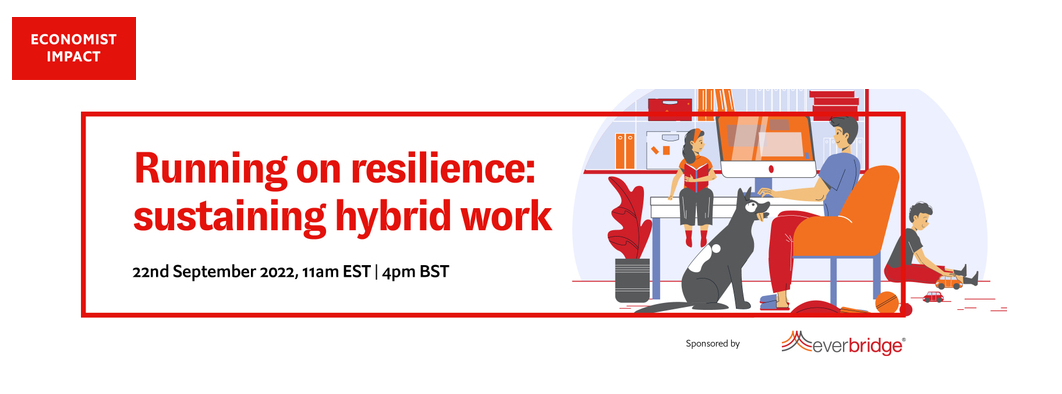Overview
Remote work is a lasting change emerging from the response to covid-19, having sustained businesses around the world when restrictions on activity forced abrupt changes in their business models. Now, as businesses explore the future of remote and hybrid work, the tug of war between culture and work-life balance begins.
For workers, hybrid work offers flexibility that makes it easier to manage other responsibilities. At the same time, the ability to work from anywhere blurs the line between working and resting hours. Keeping connected around the clock can quickly lead to burnout as workers stay late at their desks to make up for time spent on child care and household responsibilities.
The sustained success of a hybrid workplace hinges on the ability of employers to recognise the risk of worker burnout and prevent it by empowering people to set boundaries. How can workers reclaim their time and what does a resilient workforce look like?
Programmed by Economist Impact and sponsored by Everbridge, this panel discussion will convene workforce and technology leaders to examine the transformation of work and its effect on business continuity.
Key questions to be addressed include:
- Hybrid work gives workers more flexibility, but how does it affect the feeling of belonging to a single organisation with a cohesive identity and culture?
- How should executives balance flexibility with the potential for burnout? How can leaders still foster a workplace culture in a hybrid work environment?
- What does digital transformation look like in a remote work environment?



